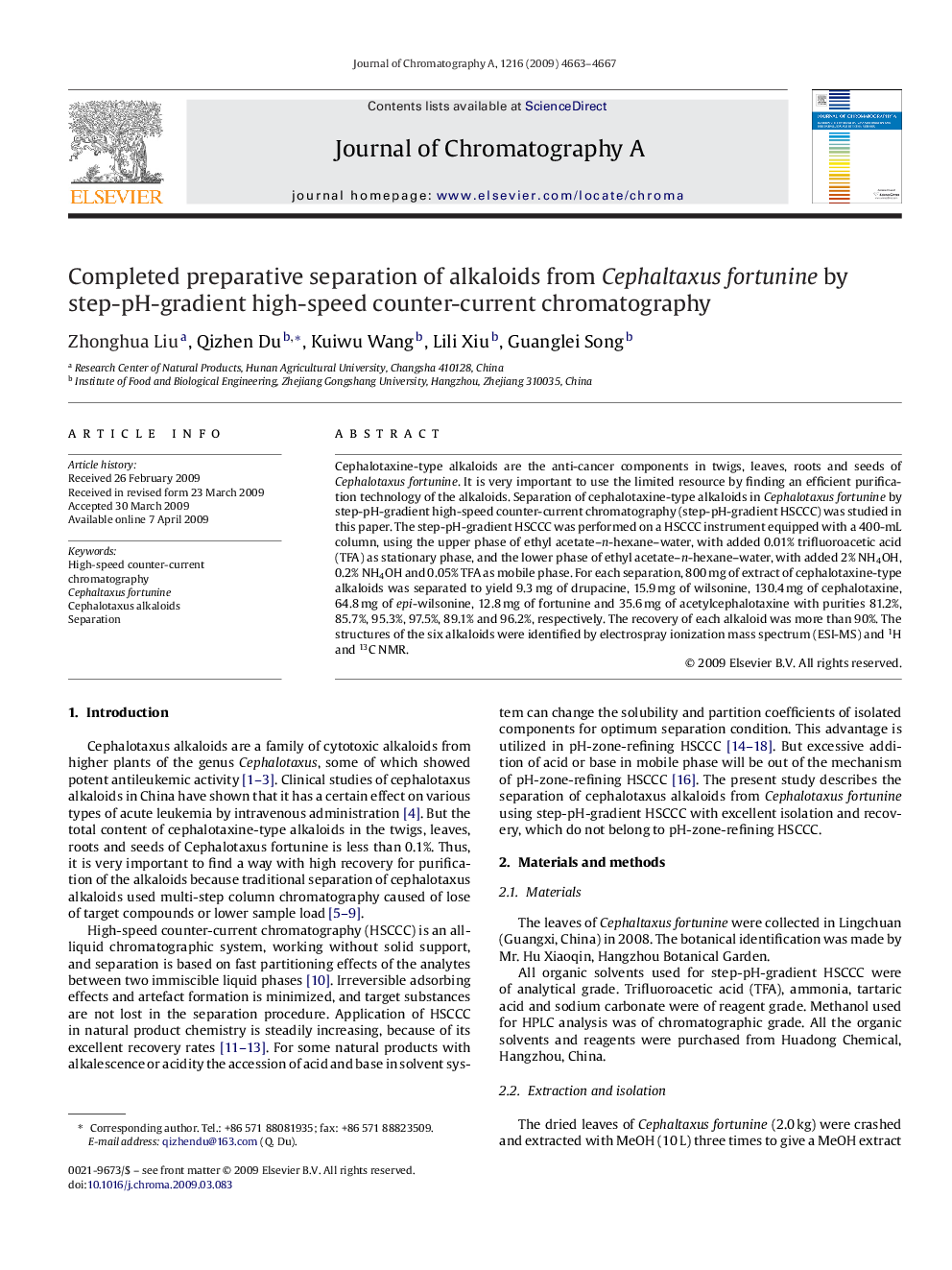| Article ID | Journal | Published Year | Pages | File Type |
|---|---|---|---|---|
| 1206518 | Journal of Chromatography A | 2009 | 5 Pages |
Cephalotaxine-type alkaloids are the anti-cancer components in twigs, leaves, roots and seeds of Cephalotaxus fortunine. It is very important to use the limited resource by finding an efficient purification technology of the alkaloids. Separation of cephalotaxine-type alkaloids in Cephalotaxus fortunine by step-pH-gradient high-speed counter-current chromatography (step-pH-gradient HSCCC) was studied in this paper. The step-pH-gradient HSCCC was performed on a HSCCC instrument equipped with a 400-mL column, using the upper phase of ethyl acetate–n-hexane–water, with added 0.01% trifluoroacetic acid (TFA) as stationary phase, and the lower phase of ethyl acetate–n-hexane–water, with added 2% NH4OH, 0.2% NH4OH and 0.05% TFA as mobile phase. For each separation, 800 mg of extract of cephalotaxine-type alkaloids was separated to yield 9.3 mg of drupacine, 15.9 mg of wilsonine, 130.4 mg of cephalotaxine, 64.8 mg of epi-wilsonine, 12.8 mg of fortunine and 35.6 mg of acetylcephalotaxine with purities 81.2%, 85.7%, 95.3%, 97.5%, 89.1% and 96.2%, respectively. The recovery of each alkaloid was more than 90%. The structures of the six alkaloids were identified by electrospray ionization mass spectrum (ESI-MS) and 1H and 13C NMR.
